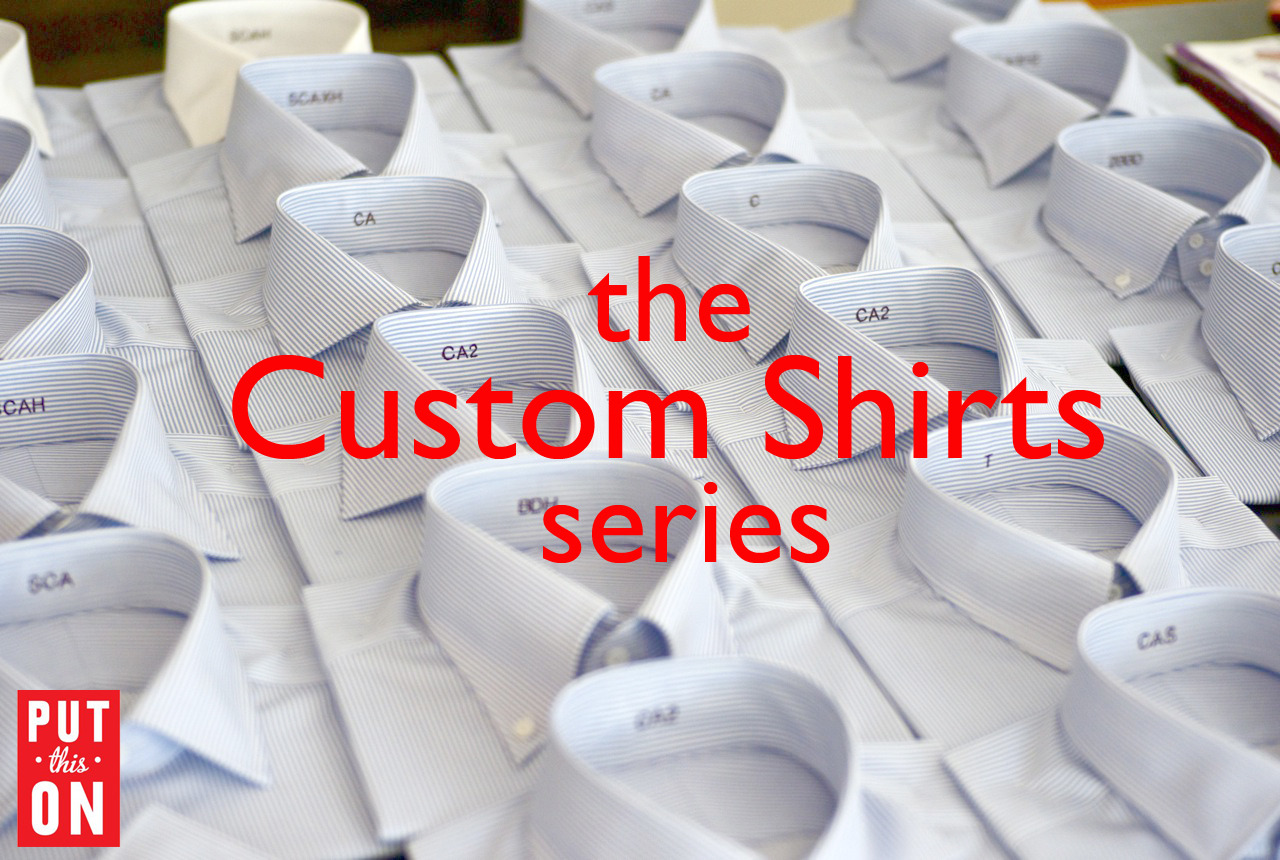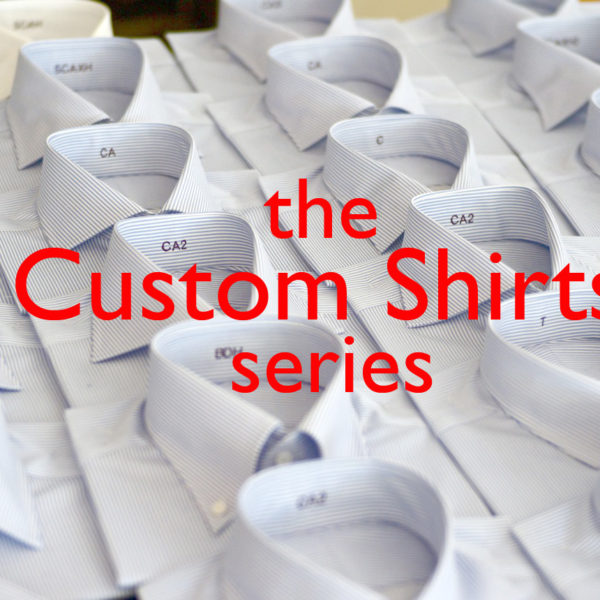
I’ve been meaning to write a series on custom shirts for – oh, I don’t know – a year now? Well, I’ve finally gotten around to it. In the coming weeks, I have a seven-part series about where you can turn to have something custom-made, and how to approach the process the best you can.
To be sure, few men need custom shirts. Most will find that ready-to-wear will serve them just fine, so long as they have reasonable expectations for fit and quality. If they’re a bit more demanding, however, they may need to go custom. The problem with ready-to-wear shirts is that they’re designed to fit everyone, but no one in particular. Take, for example, the shoulders. Shoulders can curve forward or backward, and usually one will curve more than the other. They can also slope in asymmetric ways. These nuances have to be accounted for on a truly well fitting shirt. If your shoulders curve forward or slope down, your shirt’s yoke has to accommodate. If it doesn’t, you’ll get wrinkles and folds near the collarbone or rib cage.
In addition to the fit, there’s also the matter of whether your shirt flatters you. Having something custom made can mean choosing the exact collar style that complements your face every time. A man with a long, chiseled face is best served with a spread collar, while a man with a rounder face should choose longer, narrower collar points. It’s possible, of course, to find these things off-the-rack, but you often have to compromise on other dimensions if you demand a very specific collar style.
Another advantage to going custom is the wider selection of options that becomes available to you. Obviously, you can dictate things such as cuff styles and monograms, but the real upside is in the cloth selection. In almost any department store, you may find some oxford cloths or even a linen, but the majority of dress shirts will be broadcloths. Most of these will be single-ply 80s, and the rest will probably be two-ply 100s. These will be limited further by colors and designs.
At a good custom shirt maker, you’ll find almost every type of fabric you can imagine, in a variety of thread counts, plys, designs, and colors. These can be advantageous not only if you’re looking for a certain style of fabric, but also if you need something to fulfill a certain function. Shirts with slightly more open weaves, for example, are great for summer, but are rarely stocked by department stores.
The best part about all this is that custom shirts are often not that much more expensive than their ready-to-wear counterparts. The entry-level price for a decent custom shirt is somewhere around $80-100, which isn’t too far off from the $60-70 that most department stores charge. These days, I rarely buy a ready-to-wear shirt unless it’s on sale for less than $40.
In this coming series, I hope to acquaint you with the basics of how a shirt should fit, some design details you should consider, and how you can assess quality. I’ll also review a wide range of custom shirt makers that I’ve had experiences with, and publish an interview with Ascot Chang, one of my custom tailors of choice. There should be something for everyone. Even if you’re not interested in bespoke shirts, I think you’ll find certain segments to be very relevant for ready-to-wear purchases.
The first installment goes up Wednesday, and I hope you enjoy it.
(Photo by Ethan Desu. Custom shirts in the photo by Patrick Johnson)
